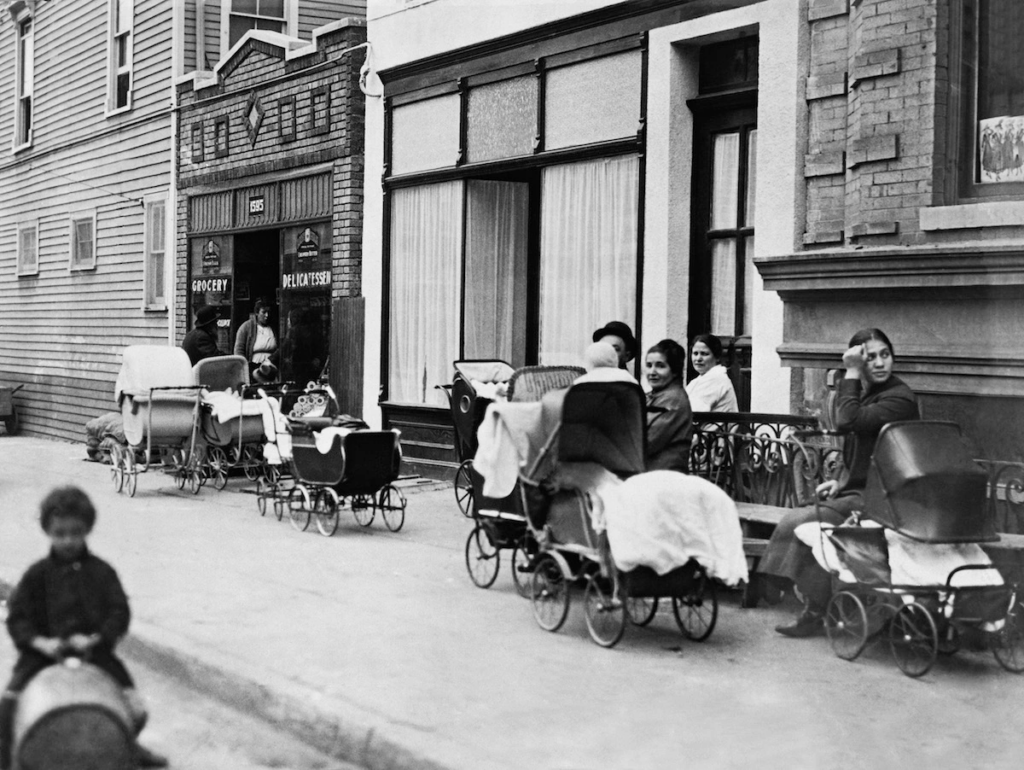
The very first birth control clinic in the United States, which laid the groundwork for what is now Planned Parenthood, was opened on October 16th, 1916, in Brownsville, Brooklyn[4]. The clinic was shut down nine days later by police though, because it was illegal at the time in the US to discuss birth control. According to Planned Parenthood, “women lined up down the block to get birth control information and advice from Sanger, Byrne, and Mindell,” the women who opened the clinic. However, the woman who is known to be the start of Planned Parenthood, and other reproductive health clinics, was Margaret Sanger. And while she provided critical foundation to what reproductive and women’s health is now, it is possible to have started with a very racist ideology, eugenics.
Eugenics is the outdated theory claiming that by controlling who reproduces, you can get rid of, or improve, hereditary traits, including race[3]. There is a lot of debate and controversy around the origins of Planned Parenthood because of the associations Sanger had with Eugenics. She believed that the “fit” should have more children, and that the “unfit” should have less children, a very popular ideology during the early 1900s, although, it was never clarified or defined in terms of race explicitly[6]. Because eugenics was so popular during the time she started the reproductive rights movement, it is possible that she was influenced in some way by the theory.
The extent to which it influenced her and whether it inspired her work is what is mostly debated and still relatively unclear. Some people believe that she wanted to provide accessible birth control to black women because of racism and eugenics, while others believe that she did the opposite and went against the white male hegemony in the US and provided birth control to black women because of that[6]. The reason this is still so controversial is because there is no source where she explicitly says anything related to eugenics, but in some of her work eugenic influence can be interpreted to be the motive.
One of the most influential and impactful projects she worked on was something called the “Negro Project”, which was started in 1939 and aimed at helping African Americans in the south[3]. Nonetheless, it appears she did have a white savior complex as she wrote in a letter to philanthropist Albert Lasker for funding for the Negro Project that “To give them the means of helping themselves is perhaps the richest gift of all. We believe birth control knowledge brought to this group, is the most direct, constructive aid that can be given them to improve their immediate situation.”[3] This could be seen as a white savior complex, especially in the social and political environment now, but it was probably not seen this way during the early 1900s but was seen as extremely progressive. This should not take away from the idea that there were people who used eugenics to justify providing birth control to black women, but it seems that this was not Sanger’s intentions or motives.
She also fully acknowledged the systematic racism and prejudice that black women face in the same letter as she describes them as “notoriously underprivileged and handicapped to a large measure by a ‘caste’ system that operates as an added weight upon their efforts to get a fair share of the better things in life.”[3] Neither of these quotes share a eugenics sentiment, but they do show how Sanger see herself as a savior to black women in the United States.
Margaret Sanger also worked closely with black activists such as W. E. B. DuBois and Mary McLeod Bethune. In the creation and planning of the Negro Project, Sanger consulted these black leaders for advice on how to run this project to help black women’s health. These black leaders approved of what she was doing with the project, however once she had to give up control of it to the large funders, the connotation of it changed a little. Sanger was an activist for women’s health, including black women, and she was able to start the fight for access to abortion before Roe v. Wade happened. She was very influential in the early to mid 1900s in the women’s fight to access birth control and abortion in the United States.
There is no doubt that eugenics was a popular concept in the early 1900s and some people used it as a reason for birth control and abortion to be more widespread and accepted in the US, but it is still debated whether the founder of Planned Parenthood also fell into this ideology. Some historians and authors argue that she did believe in eugenics, while others claim that this is a myth. Although there seems to be very little motivation based off eugenics in the creation and foundation of Planned Parenthood, there are racist tones, such as Margaret Sanger’s white savior complex.
Works Cited:
[1] Baum, B. D., Harris, D., & Roberts, D. (2009). Margaret Sanger and the Racial Origins of the Birth Control Movement. In Racially writing the Republic Racists, race rebels, and transformations of American identity. essay, Duke University Press.
[2] McCann, C. R. (1999). Chapter Four: Birth Control and Racial Betterment. In Birth control politics in the United States, 1916-1945. essay, Cornell University Press.
[3] Opposition claims about Margaret Sanger – Planned Parenthood. (n.d.). Retrieved April 21, 2023, from https://www.plannedparenthood.org/files/8013/9611/6937/Opposition_Claims_About_Margaret_Sanger.pdf
[4] Parenthood, P. (n.d.). The history & impact of planned parenthood. Planned Parenthood. Retrieved April 21, 2023, from https://www.plannedparenthood.org/about-us/who-we-are/our-history#:~:text=On%20October%2016%2C%201916%2C%20Sanger,Sanger%2C%20Byrne%2C%20and%20Mindell.
[5] Underwood Archives/Getty Images. (n.d.). Women and men sitting with baby carriages in front of the Sanger Clinic in Brooklyn, N.Y., October 1916. How Planned Parenthood Changed Everything. Time. Retrieved from https://time.com/4527330/planned-parenthood-100-history/.
[6] Valenza C. (1985). Was Margaret Sanger a racist?. Family planning perspectives, 17(1), 44–46.
Megan Mosteller